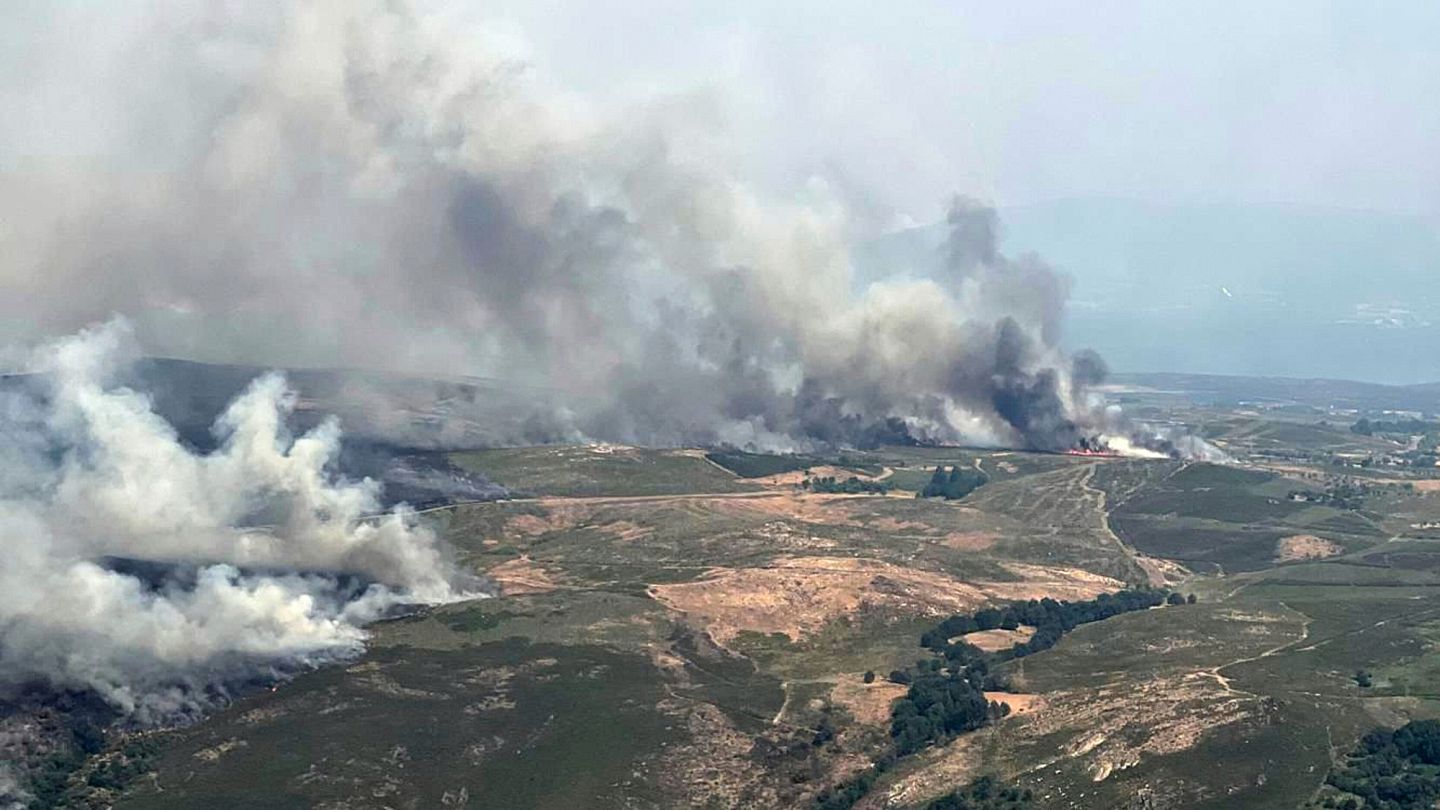Death toll rises as wildfires continue to burn across southern Europe
Firefighters in Spain, Portugal, Greece and Turkey continue to battle wildfires that have raged on for weeks. Hot and dry conditions are expected to persist, challenging efforts to contain the blazes.
Wildfires continue to burn across southern Europe amid an ongoing heatwave that has challenged efforts to contain the blazes, while temperatures are set to climb over the weekend.Spain is currently fighting 14 major fires, according to Virginia Barcones, general director of emergency services. “Today will once again be a very tough day, with an extreme risk of new fires,” Spanish Prime Minister Pedro Sánchez wrote on X.Three people have died in Spain as a result of the fires, including two volunteer firefighters. Sánchez expressed support for the family of the second volunteer, who died in a hospital in León on Thursday after suffering severe burns.The national weather agency AEMET warned of extreme fire risk in most of the country, including where the largest blazes were burning in the north and west. A heatwave which brought temperatures exceeding 40C on several days this month is expected to last through Monday.Fires in the Galicia region forced the closure of several highways. The high speed rail line connecting it to Spain's capital Madrid remained suspended.The fires in Spain this year have burned 158,000 hectares of land, according to the European Union’s European Forest Fire Information System. That is an area roughly as big as metropolitan London.First death from fires in PortugalIn Portugal, nearly 4,000 firefighters were battling fires on Friday. Seven major fires were active. Authorities extended the state of alert until Sunday as high temperatures are expected to last through the weekend.In the Guarda district, a lack of resources is hampering efforts to subdue the flames. Fires have spread to the neighbouring municipalities of Pinhel and Trancoso.In the village of Alverca da Beira, the flames reached an abandoned house. Concern for other neighbouring houses led dozens of people to try to extinguish the fire with their own means.On Saturday, the charred body of the former mayor of Vila Franca do Deão was found, making him the first fatality of the forest fires ravaging the country this summer.The Portuguese government had on Friday requested assistance from the EU’s civil protection mechanism, a firefighting force that European countries in need can call upon. A day earlier, Spain received two Canadair water bomber aircraft after requesting EU help to tackle blazes for the first time ever.In the past week, Greece, Bulgaria, Montenegro and Albania have also requested help from the EU’s firefighting force to deal with forest fires. The force has already been activated as many times this year as the entirety of last year's fire season.New evacuation orders issued in GreeceOn Friday, a wildfire in Greece burned out of control for a fourth day on the island of Chios, prompting several more overnight evacuations.Two water-dropping planes and two helicopters were operating in the north of the island in the eastern Aegean Sea, where local authorities said a lull in high winds was helping firefighters early Friday.Following a series of large fires in western Greece earlier this week, the fire service was on alert outside Athens and nearby areas in the south of the country where adverse weather conditions elevated the fire risk.Firefighters in Turkey also continued to tackle fires across several provinces, and many appeared to be largely contained by Saturday.Scientists say that climate change is exacerbating the frequency and intensity of heat and dryness in parts of Europe, making the region more vulnerable to wildfires.The burning of fossil fuels like coal and gas releases heat-trapping gases, which are the primary driver of climate change.Europe has been warming twice as fast as the global average since the 1980s, according to the EU’s Copernicus Climate Change Service.The EU monitoring agency says that 2024 was the hottest year on record both globally and in Europe, which experienced its second-highest number of "heat stress" days.


